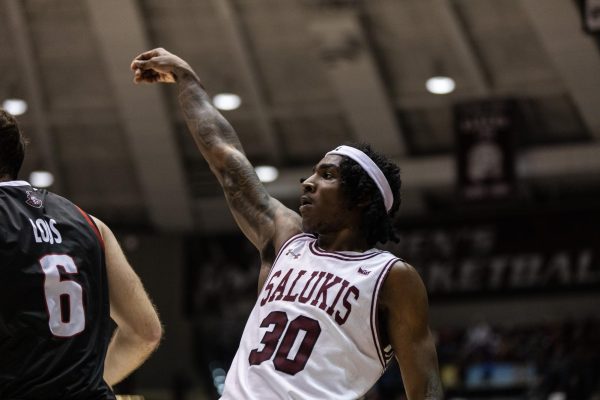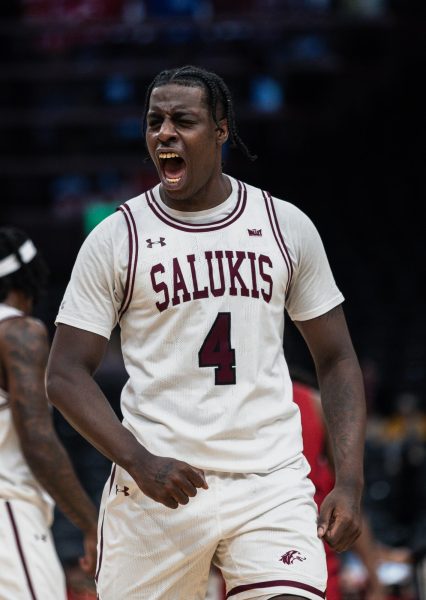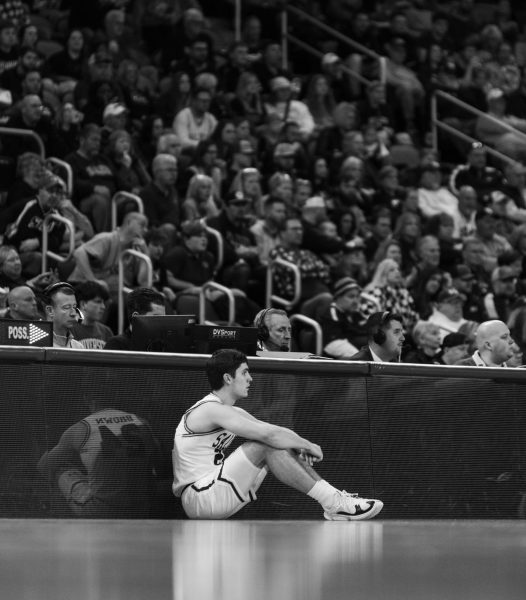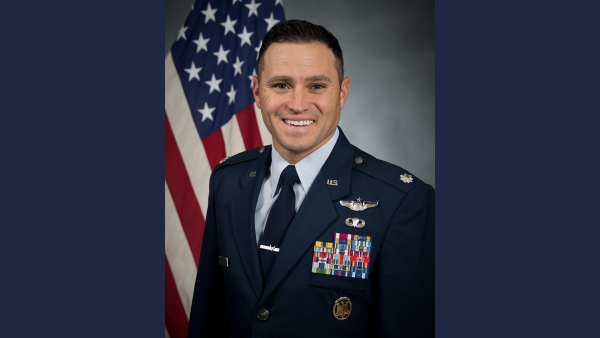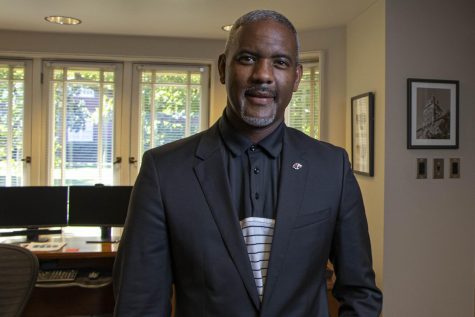Q & A with Saluki basketball great Chris Carr during Black History Month
Black History Month is a time when people reflect on all the accomplishments Black Americans have made throughout history. One part of this history is recognizing the accomplishments of Black athletes in sports. There are a lot of names to go around for great athletes out of SIU and a number of them are Black.
Saluki hall-of-famer Chris Carr is one of the many great Black athletes to come out of Southern Illinois and was talented enough to continue his career in the NBA as well as Greece and Serbia in their basketball leagues.
Carr was drafted 56th overall in the second round of the 1995 NBA draft by the Phoenix Suns and was able to play with five other NBA teams across all six seasons of his career. He even managed to earn a spot in the 1997 NBA Slam Dunk Contest, where he lost to Kobe Bryant.
Currently, Carr is an assistant coach for division II Drury University, passing on his knowledge of the game.
Advertisement
The Daily Egyptian was able to have a chat with Chris Carr in regard to Black History Month and what it means to him as one of the most recognized Black athletes to come out of Southern. He shared his experience being able to pass on what he’s learned to the next generation of players.
Q: What does being not only one of the greatest Black athletes to come out of SIU but one of the greatest athletes, in general, to come out of SIU mean to you?
Carr: “It’s humbling that people recognize me as that, but I love the fact that people recognize me more for my character and how I treated people. That means equally if not more than being a great athlete. I take a lot of pride in treating people the right way.”
Q: When you were a player here back in the day, was there any type of acknowledgment about Black History Month in the locker room when you were here?
Carr: “You’re always mindful of that as an athlete and with that, you’re always conscious of being respectful of all of it. It was really cool as athletes to be able to have something to unify us as a culture but unify us as athletes as well. It was something that was talked about, but more importantly, it was more about knowing the people that paved the way for you to be where you’re at. That was a bigger thing.”
Q: What does it mean to you to pass on your perspective as a Black man to the locker room over at Drury?
Carr: “It’s amazing because we have a really diverse locker room. I’m able to relate to the players of color and give them a different perspective, but also the perspective that’s coming from the players to the staff. Being able to have the ability to communicate going in the other direction as well. It’s important that the men and women of color in athletics not only have a voice but they also have a presence that they can communicate with someone.
Advertisement*
Q: Is Black History Month being talked about with you guys over there at Drury?
Carr: “It’s definitely talked about over here. We have two young men of Nigerian descent that have a little broader perspective of Black History Month because of their African heritage. We have what we know in America, but they have what they know as native Africans. That’s not only something that we hold near and dear to, but they do as well as in Africa.”
Q: What are some improvements you’d like to see in your lifetime to advance the equality of Black people in America?
Carr: “I just think the biggest thing is to continue to strive for the respect of human life. It’s the broader picture. We’re aware of issues that have arisen the last few years in terms of race relations, but I think the bigger picture is to respect people as human beings. We’re all one race. We’re all part of something bigger in the human race and we just have to keep that in mind and be respectful of that.
Q: What have been some improvements you’ve seen in your lifetime in terms of being respected for your race?
Carr: “Coming from where I grew up, we were the only family of color. Obviously, there’s going to be some challenges. I was blessed to have a mother to raise me to be respectful of people that are respectful of you and stay away from those that aren’t. It allowed me to have a different perspective on life collectively. I have a perspective as an athlete as well. I’ve had so many more great days than I have [had] challenging days and I hope we can continue to strive as a nation towards treating each human being in a respectful manner.”
Q: Was there a specific Black mentor you had growing up or even in your NBA career that has really stuck to you?
Carr: “I’ve had a ton of those throughout my life. Probably my mother was the one I looked to and guided me through every facet of life and made me into the man I am today. I also look towards my brothers. They had all been down a path I was going to go through as a young man of color in the United States. A lot of people looked up to athletes and other people of that nature, but I had the best people for me to be the person I am today in front of me. Coach Herrin furthered that when I got to college and was amazing in making me a great young man. He told me that people will remember me as the person far more than they’ll remember how many points you score. I’m so thankful for all of the people that have been influential in my life.”
Q: How did some of the previous generations of Black athletes help shape the way for you and your other Black teammates in your time?
Carr: “I don’t know if I would get an opportunity to be in the NBA if it wasn’t for guys like Bill Russell that paved the way for all minorities to have an opportunity. Similar to that, I’m not sure if I’d be at SIU if it wasn’t for Walt Frazier. There are so many that came before me that allowed guys like me to be who we became. You can’t take those things for granted and have to be mindful of that. They allowed us to have the life we have and the brand that we are.”
Q: How did your career in basketball shape your understanding of the world and how it works in terms of equality and inclusion?
Carr: “Man, being in college basketball is such an accomplishment in itself and being able to progress on to play professionally in the NBA and Europe, those experiences are hard to put into words. I know that part of the reason I was able to have success at all levels was equally about the person I was as it was about the player I was. Those are things that opened up doors for me to be a coach and give back to the game and young people of the game. In my heart it was all about being the person I am and the character I carried myself with on a daily basis”
Q: How important is it for Black children today to be able to have somebody in athletics to look up to that looks like them?
Carr: “It was good being a teammate with people like Charles Barkley and Kevin Garnett who actually didn’t feel like they were role models, even though they were highly influential. They do have an impact anyways, but people can tell the true man that you are by the way you carry yourself every day. That shows the true measure of the person you are way beyond just being a great basketball player.
Q: How can we continue Dr. King’s message of inclusion and equality today?
Carr: “Continue to repeat it all the time. Have a voice for reason and understanding, respect, and character. All that laid the foundation for the United States to be the land of the free that it is today. All these are extremely important and we shouldn’t lose sight of the ultimate goal of living a great life without fear of another human being at the cost of skin color, how you talk, dress out of fear or lack of understanding. Addressing those things are important to continue Dr. King and all those legacies that came before us.”
Sports reporter Joseph Bernard can be reached at [email protected] or on twitter @Jojobernard2001. To stay up to date on all your southern Illinois news, follow the Daily Egyptian on Facebook and Twitter.
Advertisement






